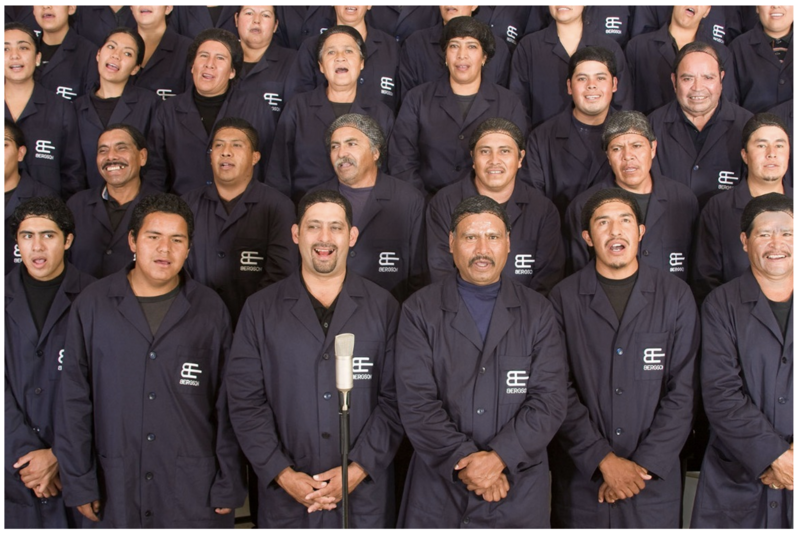
Canned Laughter
Canned Laughter is the result of a 2009 commission to work site-specifically in Ciudad Juárez at the Mexico-US border in the State of Chihuahua, bordering El Paso, Texas. During a period of extreme violence, artists were asked to create works based on their experience of the city. Okón’s video Canned Laughter takes up the city’s role of being home to maquiladoras, sweatshops or factories set up in border cities in Northern Mexico after North American Free Trade Agreement was signed in 1994. Maquiladoras are known for employing workers at low wages and no rights and thus Canned Laughter takes up Ciudad Juárez’s role in the context of globalized capitalism and sweatshop labour as a root cause for violence. Inspired by Henri Bergson’s thoughts on laughter, Okón has created a fictitious factory that produces canned laughter for US sitcoms. As part of the research and production process for the piece, dozens of maquiladora workers living in Juárez were hired as consultants (maquiladoras are highly secretive and it is very hard to know what happens inside) and as performers. They were instructed to generate the sound of laughter with straight faces, so that their performance points metaphorically to the disturbing contrast between the smooth façade of consumer culture and its dark and violent underbelly. Canned Laughter also alludes to the mechanization of labour and life processes by capitalism, to slavery in the age of globalization, and to the impossibility to translate and reproduce human emotions through technological means.

The Blackwood
University of Toronto Mississauga
3359 Mississauga Road
Mississauga, ON L5L 1C6
[email protected]
(905) 828-3789
The galleries are currently closed.
Facebook | Twitter | Instagram
Sign up to receive our newsletter.
The Blackwood is situated on the Territory of the Mississaugas of the Credit, Seneca, and Huron-Wendat.